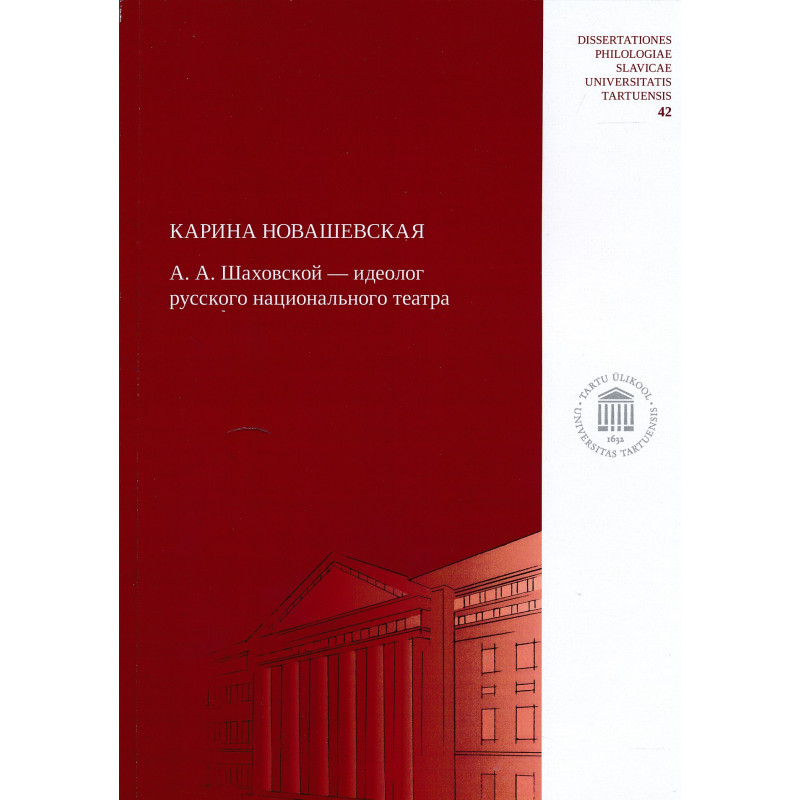



Tartu :University of Tartu Press, 2020
ISBN: 9789949034697
250, [1] p. ; 25 cm
Dissertationes philologiae slavicae Universitatis Tartuensis ; 42
Softcover new book
Doctoral theses defended at the University of Tartu, summary in Estonian
Prince Alexander Shakhovskoy (1777–1846) was one of the main figures of Russian theatre of the first third of the 19th century. He served in the directorate of the Imperial Theatres for almost 30 years, he was one of the heads of the repertoire policy, director and mentor of many actors. The objective of the current study was to examine the work of Shakhovskoy from the point of view of the formation of his concept of Russian national theatre. The dissertation stands at the intersection of several research areas: the study of imperial ideology, national myths, nation-building in Russia in the first third of the 19th century; research of Russian "archaism", the history of Russian theatre of the end of the 18th – first third of the 19th century and theatrical criticism; the study of A. Shakhovskoy’s work on the background of the social and literary life of the era. This thesis provides a detailed reconstruction and analysis of Shakhovskoy's program. It consisted in the following: 1) the creation of a Russian repertoire with plays, the plots of which are taken from Russian life and history, and the depiction of characters is directly related to the cultural and moral characteristics of the Russian people. For this, elements of verbal and musical (pseudo) folklore were widely used, the spoken language was developed as the embodiment of the folk character; 2) inclusion in the current literary process of various theatrical genres, as well as dramatic remakes from the literary works of the romantic era (Pushkin's poems, Zhukovsky's ballads, V. Scott's novels, and many others); 3) collaboration with young authors, which was supposed to enrich the repertoire with new plays of the “right direction”; 4) the creation of a Russian national school of acting, different from the West; 5) solving the problem of imitating the European theatre by searching for exemplary models and filling them with national content — “adopting the best for own country”, and this happened through an orientation towards the achievements of Western European theatrical thought, in particular, on the ideas of A. Schlegel; 6) the proclamation of the ancient Greek theatre as a model for the Russian; 7) an attempt to create an “ideal” history of the Russian theatre, which is not inferior to the Western European one. The activity of Shakhovskoy, as well as the entire Russian “archaism”, followed the ideas of European pre-romanticism and romanticism with its cultural nation-building.